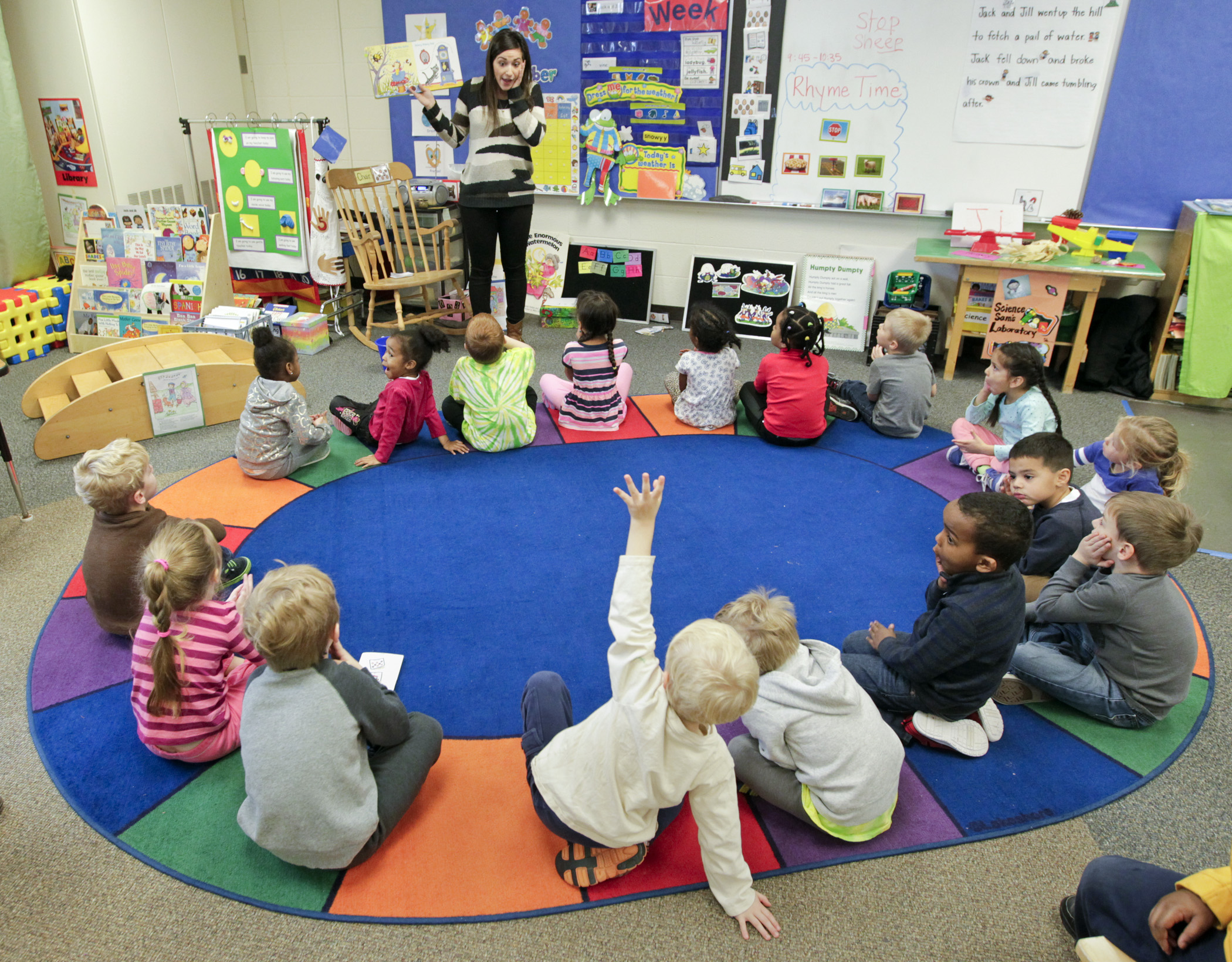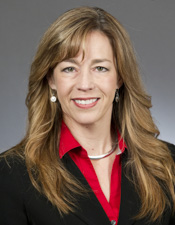Committee considers changes to pre-K programming delivery

With a goal of increasing parental choice, HF3870 sponsored by Rep. Roz Peterson (R-Lakeville), would require a portion of voluntary pre-kindergarten students be served through a mixed delivery of services.
School districts and charter schools would be required to contract with three- or four-star rated Parent Aware programs in their communities for a minimum of 40 percent of new preschool participants. The Parent Aware programs are typically offered by private or community-based organizations.
“This bill is an effort to ensure that we have a balanced presentation of Pre-K providers in a publically funded state Pre-K program,” Peterson said. “We best meet child and families’ needs and achieve the best outcomes when the private and community and public sectors work together.”
The bill was held over Wednesday by the House Education Finance Committee for possible omnibus bill inclusion. The companion, SF3516, awaits action by the Senate E-12 Finance Committee. Sen. Carla Nelson (R-Rochester) is the sponsor.
Wendy Webster, director of community services and communications for St. Anthony-New Brighton Public Schools, said that while she supports mixed delivery systems, the specific language in the bill and mandates were not feasible for some communities.
“The concern I have with this language is that in rural Minnesota we do not have a broad base of child care centers with a four-star Parent Aware rating,” she said. “Also, established licensed daycare homes and preschools do not necessarily have the same standards as the school district in terms of licensed teachers, curriculum, and assessment, training, etc.”
It was a concern shared by several committee members and Adosh Unni, director of government relations for the Minnesota Department of Education.
Unni said the department has worked to incentivize public schools and charters to partner with private licensed preschool providers and, as a result, they’re seeing more providers applying to become mixed delivery system providers and more students using them. However, he said that given the uncertainty of preschool funding, now’s not a good time to implement these mandates.
“We would say that the requirement of having a mixed delivery threshold at 40 percent, or any percent, is premature,” Unni said. “I think we need to see this model mature, and see how our technical assistance and the point system have an impact.”
Under the proposal, if a district does not have enough interested and eligible providers to meet the 40 percent threshold, it can instead use those funds for its own program. However, Peterson is agreeable to modifying language to allow for flexibility.
“This bill is about doing what’s best for parents and empowering,” she said. “Maybe having a set goal in there is too stringent, but on the other hand we already have encouraged and it’s not necessarily really happening.”
Future preschool funding
Earlier this week, Gov. Mark Dayton held a news conference encouraging lawmakers to extend supplemental preschool funding into the next biennium. Last session, the Legislature approved a one-time appropriation of $50 million to be used to expand preschool during the 2017-18 and 2018-19 school years.
“It shouldn’t be so hard to provide high-quality education to children who need it, will benefit from it and do better for the rest of their lives because of it,” Dayton said. “But here we are again, having to fight just to get the current level of funding for voluntary prekindergarten and school readiness plus extended into the next biennium.”
The funding has expanded preschool services to 59 school districts and charters, and provided services to an additional 4,000 kids. If it is not extended, the additional services will expire after the end of the 2018-2019 school year.
Rep. Jenifer Loon (R-Eden Prairie), the House Education Finance Committee chair, released a statement in response, saying the governor’s request was premature and that lawmakers plan to discuss the topic during the next funding year.
"Early education has been a priority for House Republicans and we are proud to have worked with the governor to boost proven early-learning programs that target resources to the children who need them most,” Loon said. “We look forward to a robust discussion with Gov. Dayton's successor about this and all other budget items when the next legislature convenes in January 2019."
Related Articles
Search Session Daily
Advanced Search OptionsPriority Dailies
Ways and Means Committee OKs proposed $512 million supplemental budget on party-line vote
By Mike Cook Meeting more needs or fiscal irresponsibility is one way to sum up the differences among the two parties on a supplemental spending package a year after a $72 billion state budg...
Meeting more needs or fiscal irresponsibility is one way to sum up the differences among the two parties on a supplemental spending package a year after a $72 billion state budg...
Minnesota’s projected budget surplus balloons to $3.7 billion, but fiscal pressure still looms
By Rob Hubbard Just as Minnesota has experienced a warmer winter than usual, so has the state’s budget outlook warmed over the past few months.
On Thursday, Minnesota Management and Budget...
Just as Minnesota has experienced a warmer winter than usual, so has the state’s budget outlook warmed over the past few months.
On Thursday, Minnesota Management and Budget...
